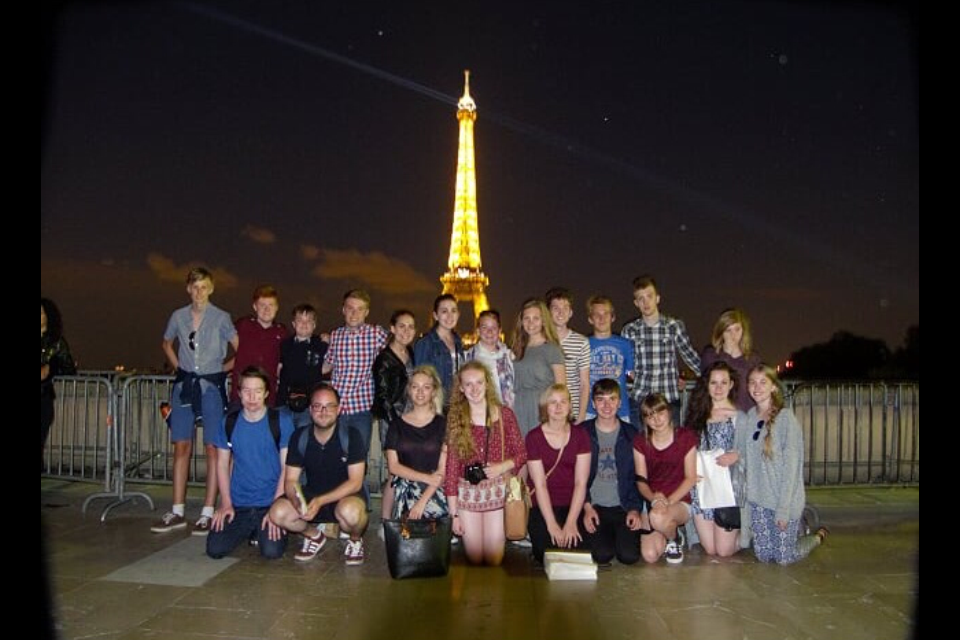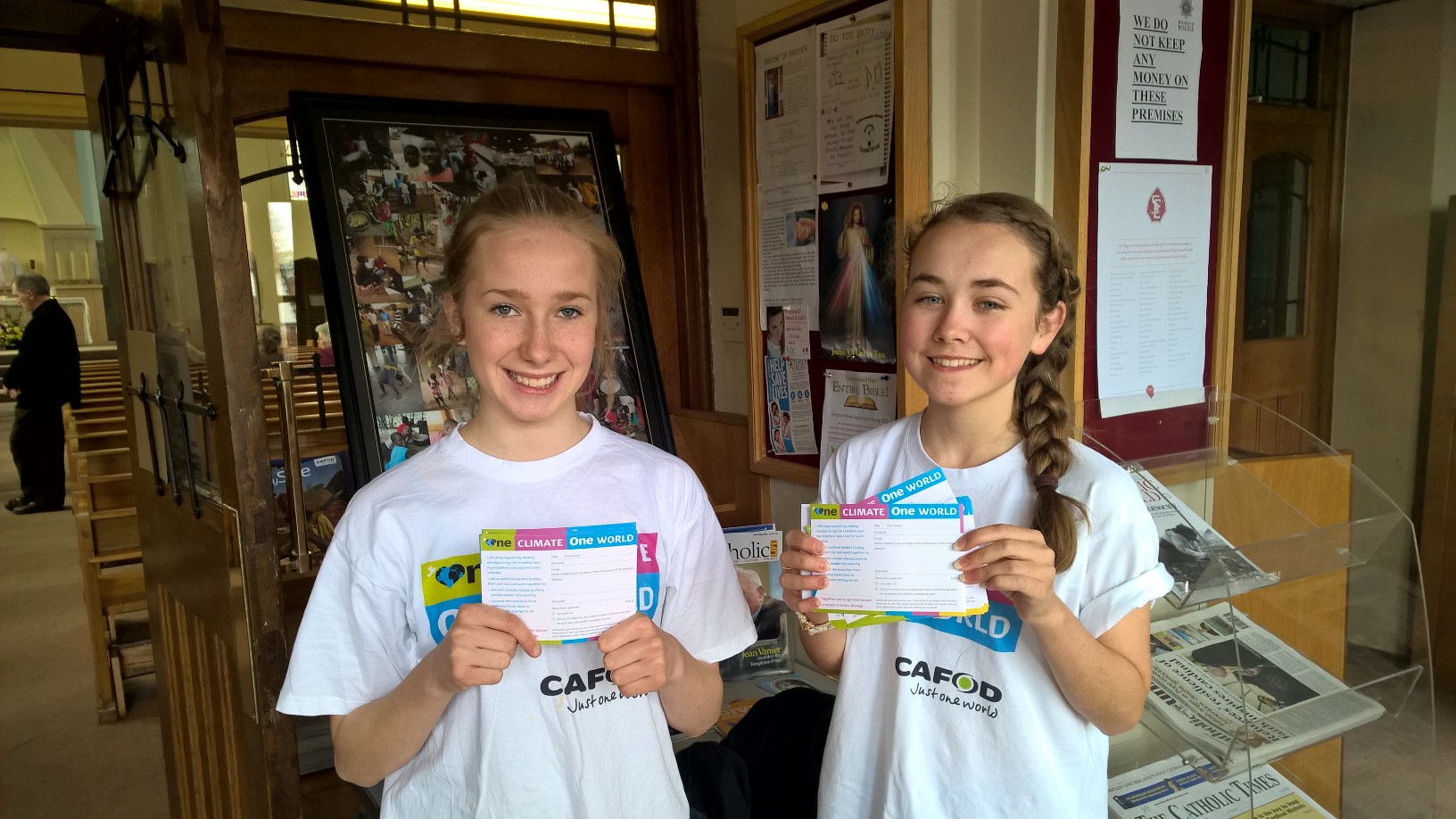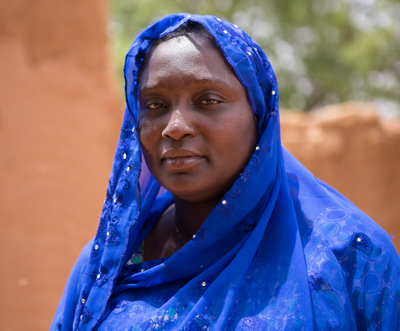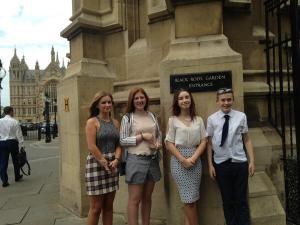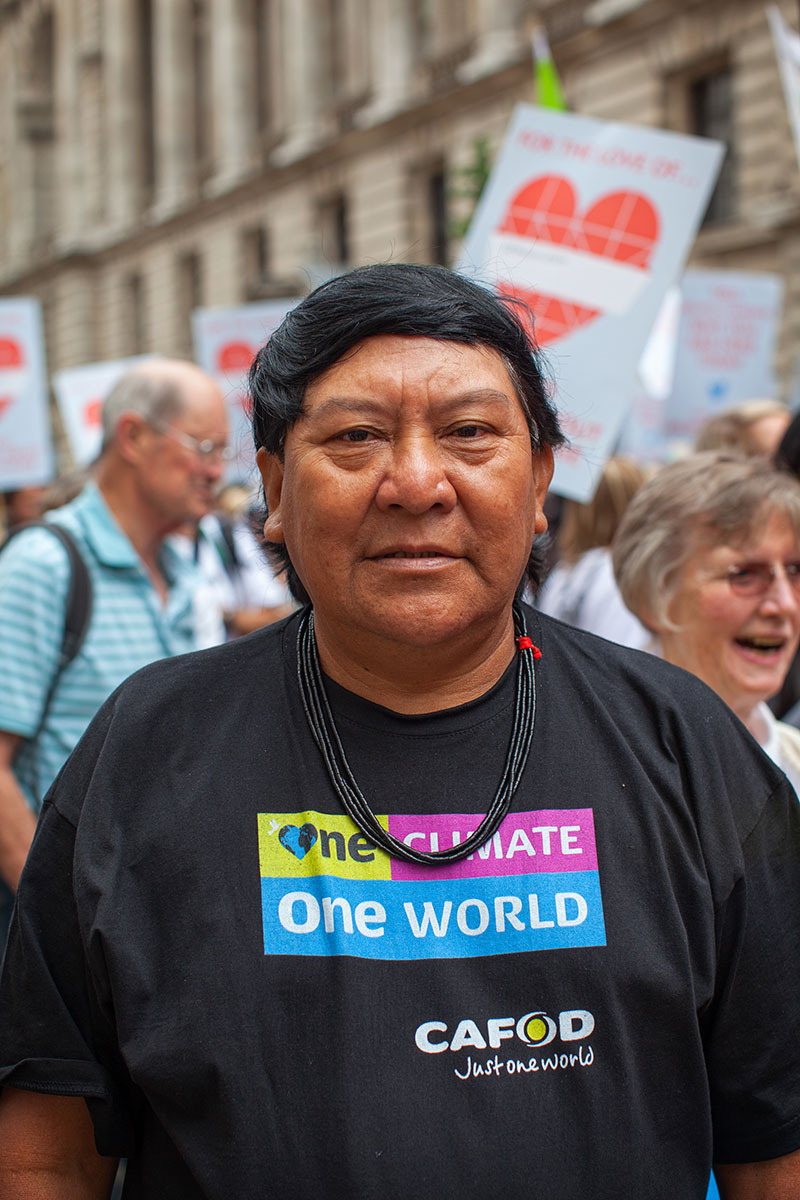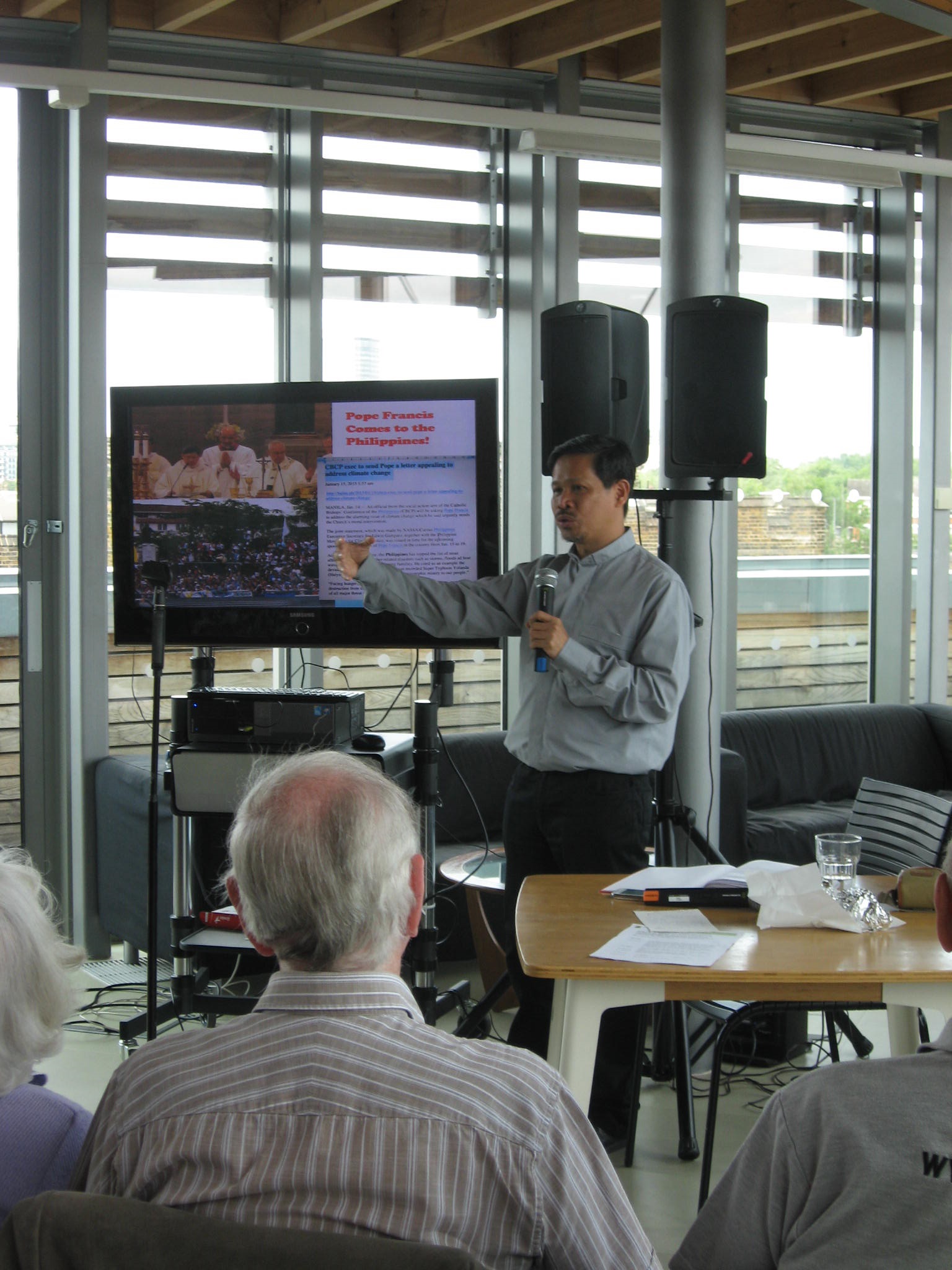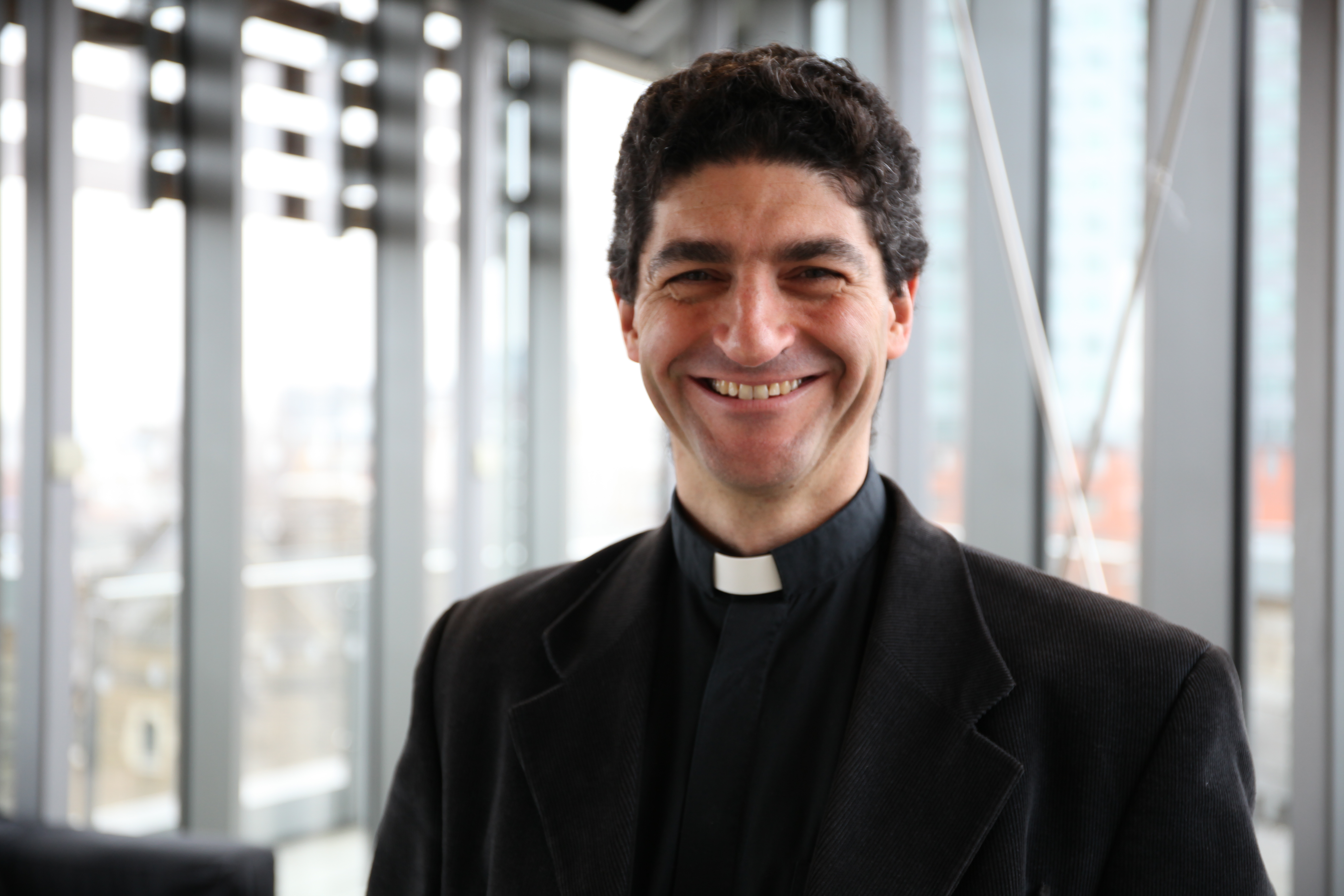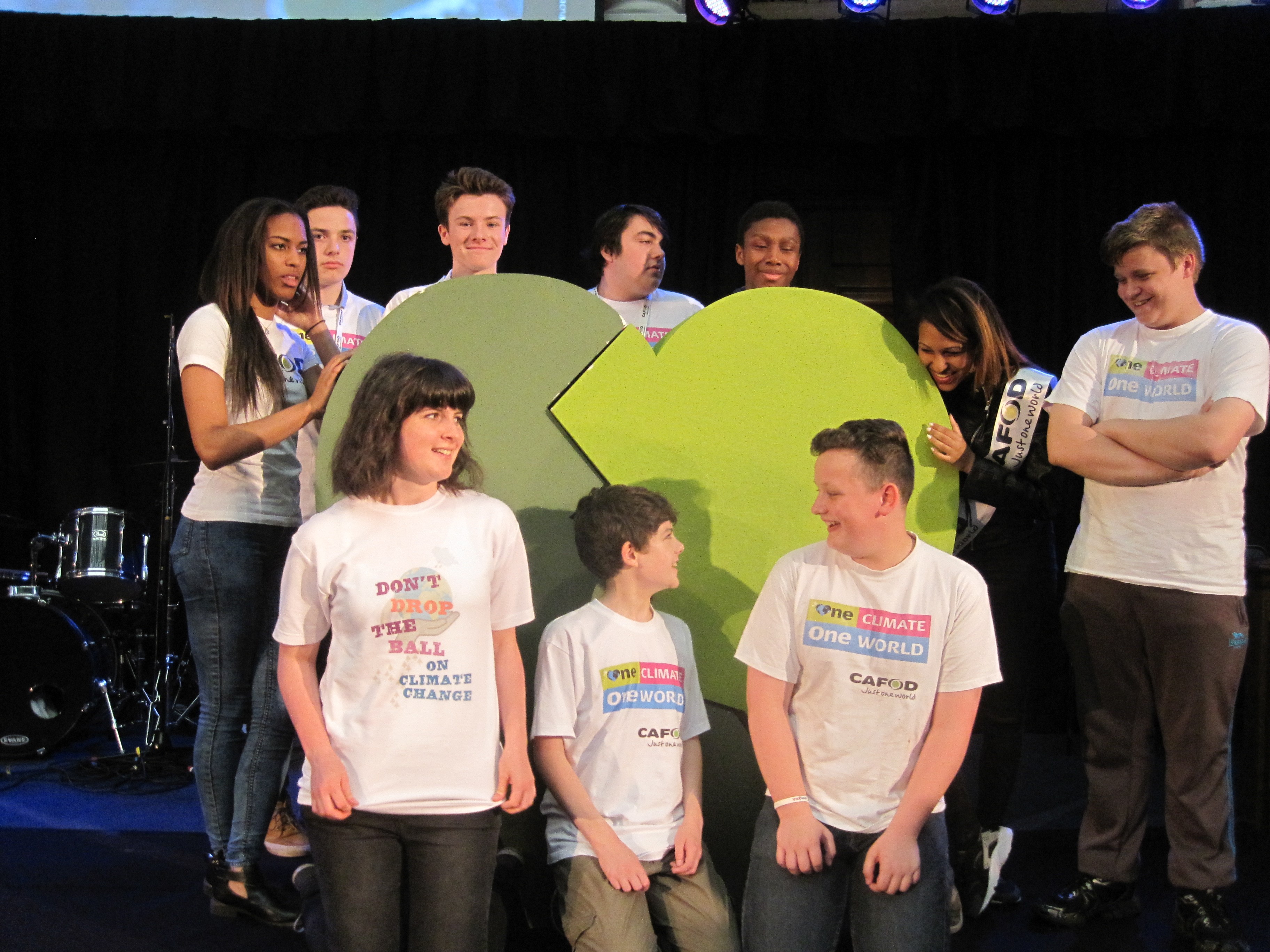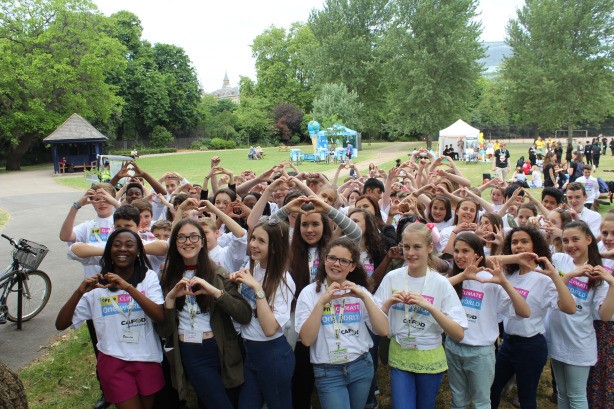Philippines Typhoon: two years on
November 6, 2015
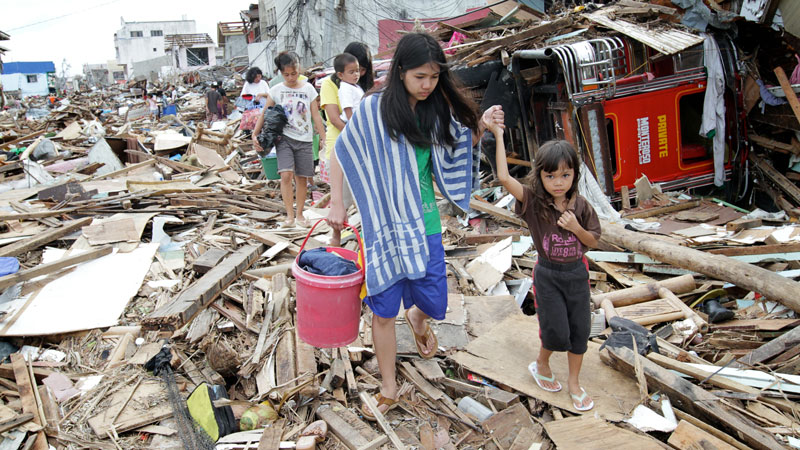
CAFOD Director Chris Bain visited the Philippines shortly after it was hit by Typhoon Haiyan, one of the most powerful storms ever recorded. Two years on, he reflects on what has been achieved.
Add your name to Pope Francis’s call to action on climate change
When I flew into the Philippines a few weeks after Typhoon Haiyan, I was shocked by the extent of the damage. The destruction in Tacloban was the worst I’ve ever seen – worse even than after the Boxing Day tsunami of 2004. 170 mph winds and 25-foot waves had destroyed concrete buildings, overturned cars, and drowned thousands of people.
Catholics in England and Wales responded with great compassion to the typhoon, donating an amazing £5.4 million to CAFOD’s appeal. In the first weeks after the disaster, we worked with our Caritas partners to reach thousands of people, providing emergency support including clean water, food, shelter kits, hygiene facilities, and everyday household goods.
Over the longer term, the needs have changed. We have been working to provide more lasting assistance such as shelter and livelihoods and have been looking at how to reduce risks in case of another disaster.
Two years on, it is extremely encouraging to see that the work of the Church has helped so many thousands of people move into stronger homes, and find new ways of making a living. Our thoughts and prayers are with the many local aid workers, diocesan staff and volunteers in the Philippines whose tireless work has helped so many people to rebuild their lives.
As Pope Francis has pointed out, however, countries like the Philippines remain at great risk because of climate change. In Laudato Si’ Pope Francis reminded us that climate change is real, urgent and that it must be tackled. He also described the climate as “a common good, belonging to all and meant for all”. Continue reading “Philippines Typhoon: two years on”

